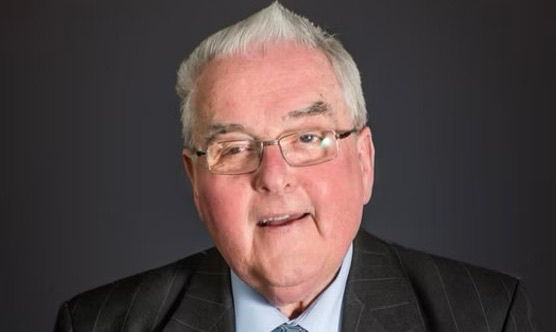New domestic abuse offence comes into force in Northern Ireland
- Love Ballymena

- Feb 21, 2022
- 4 min read

Domestic abuse in all its forms, both physical and non-physical, is wrong and will not be tolerated, Justice Minister Naomi Long said today.
She was speaking as an advertising campaign was launched to raise awareness of the new offence within the Domestic Abuse and Civil Proceedings Act (Northern Ireland) 2021, which has now come into force.
Protection is no longer limited to physical abuse, with the legislation criminalising a pattern of non-physical abusive behaviour. The new domestic offence will cover behaviour that is controlling or coercive or that amounts to psychological, emotional or financial abuse of another person. Abusive behaviour may also include sexual abuse and technological or digital abuse. It will capture patterns of two or more occasions of physical and/or psychological abuse by a partner, ex-partner or close family member and will include behaviour that is physically violent, threatening or intimidating.
Domestic abuse will also be recognised in other offences, with the potential for increased sentencing up to the maximum available. This will apply where there is a single incident that isn’t a pattern of abusive behaviour. Abusive behaviour can include making a victim dependent, isolating them from support, exploiting them, restricting their freedom or controlling their everyday activity.

Naomi Long said:
“As Justice Minister, public safety, and protecting people from violent and abusive behaviours, is a key priority for me. The new domestic abuse offence marks a milestone, and a real step change, for all those that are affected and who may be suffering in silence.
“Domestic abuse is wrong and will not be tolerated, not by our community and crucially now not by the law. No longer will those that abuse a loved one, be that a partner, former partner, or a close family member be able to evade justice. Abusers will be punished.
“The changes brought forward today will help many people, regardless of gender, sexual orientation, age, class, race or religion. This is particularly important given that anyone can be a victim, just as anyone can be an abuser.
“The sad truth is that while domestic abuse is all too common, it is often a hidden problem. I want to encourage all those affected to talk about what is happening to them, reach out for help and report abusive behaviour to the police.

“I also want to thank all those that have been involved in reaching this point. This includes those who shared their own personal lived experience; our expert voluntary and community sector partners; our criminal justice partners; and the Justice Committee for their stewardship and scrutiny of the legislation.
“While the legislation is hugely significant, how we operationalise this is equally important. Legislation on its own is not enough. Training and awareness raising is critical. As the mantle for tackling domestic abuse moves into a new operational sphere, I want to pay tribute to the extensive work and training undertaken by partners in the Police Service, the Public Prosecution Service, the Northern Ireland Courts and Tribunal Service, as well as across the wider criminal justice system. I also want to thank our voluntary sector partners for their critical role in developing our eLearning package.”
Domestic abuse represents approximately 20% of the overall crime reported to the Police Service, with an average of one report every 17 minutes.
Chief Constable Simon Byrne has described today as a ‘defining moment for our criminal justice system’.
He said:
“This legislation will support victims and will provide police with a clear definition on what constitutes domestic abuse, with access to further tools to arrest and prosecute offenders and prevent harm.
“We are here to help victims of these crimes and bring their offenders to justice. As I have said many times, this is the one crime when we know who the perpetrator is.

“Officers and staff members have been trained to recognise and respond to reports of coercive control and how to use the new powers they now have to safeguard children that witness any form of domestic abuse.
“Domestic abuse is not just physical. As of today, we are now empowered to address what has been invisible, in plain sight, for so long.
“Victims don’t have to suffer in silence. We, the Police Service, are here for you.”
There are two child aggravators associated with the domestic abuse offence, a statutory aggravation of domestic abuse associated with any other offence, and a number of associated changes to criminal procedures, evidence and sentencing in domestic abuse related cases. Provision has also been made in relation to protection of victims at court, civil legal aid for victims of abuse, guidance and operational matters (including independent oversight) related to the new offence.
WATCH: Justice Minister and Chief Constable Simon Byrne reflect on the new domestic abuse offence.
For those who need to call 999 but are scared to speak, a 'silent solution' exists to press 55 when prompted. This allows police to know it is a genuine emergency.
If you need support or advice contact the Domestic and Sexual Abuse helpline. The helpline is open to women and men affected by domestic abuse. A free telephone service is available 24 hours a day, 365 days a year on 0808 802 1414. Email help@dsahelpline.org. Website www.dsahelpline.org
Support is also available from local Women’s Aid Groups, www.womensaidni.org/get-help/local-groups , as well as the Men’s Advisory Project (028 9024 1929 or 028 7116 0001).








